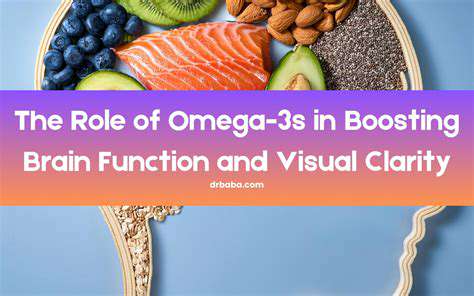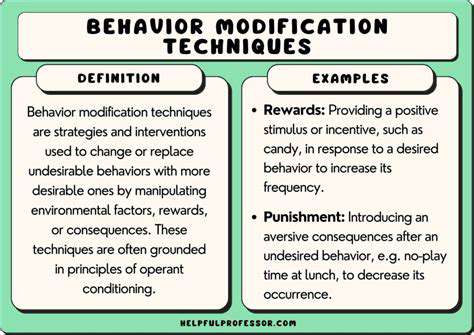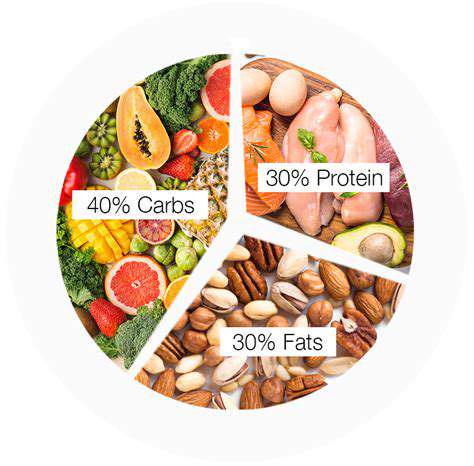Best Nutrition for Boosting Brain Function
Fueling Your Brainpower: The Role of Vitamins
Essential vitamins, like vitamin B12 and folate, play a crucial role in supporting cognitive function. These vitamins are vital for the production of neurotransmitters, the chemical messengers that facilitate communication between brain cells. A deficiency in these crucial nutrients can lead to impaired concentration, memory problems, and even mood swings. Incorporating foods rich in these vitamins, such as leafy greens, lean meats, and fortified cereals, can significantly improve your brain's ability to focus and perform at its best.
Another important vitamin for brain function is vitamin C. It's a powerful antioxidant, protecting brain cells from damage caused by free radicals. Free radicals are unstable molecules that can contribute to the aging process and cognitive decline. By consuming foods rich in vitamin C, such as citrus fruits, berries, and bell peppers, you can help maintain a healthy brain environment, supporting sustained focus and mental clarity throughout the day.
The Power of Protein for Concentration
Protein is the building block of neurotransmitters, and adequate protein intake is essential for optimal brain function. Protein-rich foods, including lean meats, fish, poultry, eggs, and beans, provide the necessary amino acids for the synthesis of these vital brain chemicals. These amino acids are crucial for creating and maintaining the structural integrity of brain cells, ensuring efficient communication between them, and supporting sustained focus and concentration.
Consuming sufficient protein throughout the day, rather than just at one meal, can help maintain stable blood sugar levels, preventing energy crashes and mental fogginess. This consistent supply of protein helps prevent fluctuations in blood sugar that can negatively impact your cognitive abilities and hinder your ability to concentrate.
Healthy Fats for Mental Sharpness
Good fats, often called healthy fats, are crucial for brain health. Omega-3 fatty acids, found in fatty fish like salmon and tuna, are particularly important for brain structure and function. They help maintain the integrity of cell membranes, enabling efficient communication between brain cells. Incorporating foods rich in omega-3s can contribute to improved cognitive function, including memory, attention span, and focus.
Hydration and Focus: The Unsung Hero
Staying properly hydrated is often overlooked but plays a vital role in maintaining optimal cognitive function. Dehydration can lead to fatigue, difficulty concentrating, and reduced mental clarity. Water is essential for transporting nutrients to the brain and removing waste products. Ensuring you drink enough water throughout the day, especially during periods of high activity or stress, can significantly enhance your ability to focus and perform your best. Keeping a water bottle handy and sipping on water regularly can contribute to sustained mental alertness and focus.
The Power of Antioxidants: Protecting Brain Cells

Unlocking the Antioxidant Arsenal
Antioxidants are essential components of a healthy diet, playing a crucial role in protecting the body against the damaging effects of free radicals. These molecules, produced as byproducts of normal metabolic processes, can wreak havoc on cells, leading to oxidative stress and contributing to various health issues, including premature aging and chronic diseases. Understanding the diverse range of antioxidants available is crucial for harnessing their protective power. Their effectiveness varies, depending on their chemical structure and the specific free radicals they target. Many fruits, vegetables, and whole grains are rich in antioxidants, providing a natural defense mechanism against cellular damage.
A diet rich in antioxidants can bolster the body's natural defenses, combating the harmful effects of free radicals. By neutralizing these unstable molecules, antioxidants help prevent cellular damage and oxidative stress, contributing to overall well-being and potentially reducing the risk of developing chronic diseases. This potent defense mechanism is vital for maintaining healthy tissues and organs, keeping them functioning optimally throughout life. Many studies have shown a strong correlation between increased antioxidant intake and a reduced risk of various health problems.
Maximizing Antioxidant Benefits
While incorporating antioxidant-rich foods into your diet is important, understanding how to maximize their benefits is equally crucial. The bioavailability of antioxidants – how effectively your body absorbs and utilizes them – can be influenced by various factors, including the food's preparation method and the presence of other nutrients. A balanced diet that includes a variety of colorful fruits and vegetables is key to ensuring a diverse intake of these beneficial compounds. Cooking methods can affect the antioxidant content, so mindful choices can significantly impact their effectiveness.
Beyond dietary choices, lifestyle factors also play a role in optimizing antioxidant benefits. Regular physical activity, adequate sleep, and stress management can all support the body's natural antioxidant defense mechanisms. Maintaining a healthy lifestyle, encompassing both diet and lifestyle choices, is essential for maximizing the positive effects of antioxidants. Stress, for instance, can increase free radical production, making it even more important to cultivate healthy coping mechanisms.
Combining different types of antioxidants can also enhance their effectiveness. For example, pairing vitamin C with vitamin E can create a synergistic effect, boosting the overall antioxidant capacity of the body. This highlights the importance of a varied diet to reap the full benefits of this powerful natural defense.
Hydration and Brain Performance: Staying Properly Watered

Hydration's Crucial Role
Proper hydration is paramount for optimal brain function. Dehydration, even mild cases, can significantly impair cognitive performance, impacting concentration, memory, and overall mental acuity. The brain is comprised of a significant percentage of water, and maintaining this balance is essential for the efficient transmission of signals between neurons. Insufficient water intake can lead to sluggishness and difficulty concentrating, hindering the brain's ability to process information effectively.
A well-hydrated brain functions more efficiently, allowing for better focus, quicker reaction times, and enhanced memory recall. This translates to improved performance in various cognitive tasks, from problem-solving to learning new information.
The Impact on Concentration
Maintaining adequate hydration levels is crucial for maintaining optimal concentration. When the body is dehydrated, the brain struggles to function at its peak, leading to difficulty focusing and maintaining attention. This can lead to decreased productivity and errors in tasks requiring sustained concentration, such as studying, working, or driving.
The brain relies on a constant supply of water to facilitate the chemical reactions necessary for cognitive processes. Dehydration disrupts these processes, making it harder for the brain to concentrate and perform at its best.
Memory and Learning Enhancement
Hydration plays a significant role in memory and learning. Adequate water intake is essential for the proper functioning of the hippocampus, a brain region critical for memory formation and consolidation. When the brain is hydrated, it can effectively process and store information, leading to improved memory retention and recall.
Learning new information and skills also benefits from adequate hydration. A well-hydrated brain can process and integrate new information more efficiently, leading to faster learning and improved comprehension.
The Link Between Hydration and Mood Regulation
The connection between hydration and mood regulation is undeniable. Dehydration can trigger mood swings, irritability, and even feelings of anxiety or depression. Maintaining optimal hydration levels helps to stabilize mood and promote a sense of well-being. A well-hydrated body functions optimally, which in turn leads to improved emotional regulation and a more positive outlook.
The brain relies on a complex network of chemical messengers, and water is essential for their proper functioning. Adequate hydration ensures that these messengers can transmit signals effectively, promoting a balanced and stable mood.
Electrolyte Balance and Brain Function
Electrolytes, such as sodium, potassium, and magnesium, are vital for maintaining proper hydration and brain function. Electrolyte imbalance can disrupt the transmission of signals between neurons, leading to cognitive impairments. A balanced intake of electrolytes alongside sufficient water intake is crucial for the optimal functioning of the brain.
Proper electrolyte balance plays a key role in regulating nerve impulses and muscle contractions throughout the body, including the brain. This in turn promotes efficient signal transmission in the nervous system, which is essential for optimal brain function and performance.
Practical Hydration Strategies
Implementing practical hydration strategies is essential for maintaining optimal brain performance throughout the day. Carrying a reusable water bottle and making a conscious effort to sip water regularly can significantly improve hydration levels. Consuming hydrating foods, such as fruits and vegetables, can also supplement your daily fluid intake.
Setting reminders to drink water throughout the day, especially during periods of intense physical or mental activity, can help to ensure adequate hydration. Paying attention to your body's signals of thirst and adjusting your intake accordingly is also a valuable practice for maintaining optimal hydration.
The majestic Rocky Mountains, blanketed in pristine snow, offer an unparalleled winter wonderland for snowshoeing enthusiasts. Imagine yourself traversing breathtaking landscapes, the crisp mountain air invigorating your senses, and the silence broken only by the crunch of your snowshoes on the fresh powder. This experience transcends the ordinary, immersing you in the raw beauty of nature's winter masterpiece.

Beyond the Basics: The Role of Micronutrients
Essential Micronutrients for Cognitive Function
Micronutrients, often overlooked, play a crucial role in supporting optimal brain function. These essential vitamins and minerals, present in trace amounts, are vital for numerous processes, including neurotransmitter synthesis, nerve impulse transmission, and the maintenance of healthy brain cells. Without adequate intake of these vital components, cognitive performance can suffer, impacting memory, focus, and overall mental well-being. A balanced diet rich in a variety of nutrient-dense foods is key to ensuring sufficient micronutrient levels.
Understanding the specific roles of different micronutrients, such as vitamin B12, crucial for nerve function, and iron, vital for oxygen transport to the brain, is essential. Deficiencies in these, and other key micronutrients, can manifest as cognitive impairment, mood swings, and decreased alertness. Maintaining adequate levels through a healthy diet and, when necessary, supplementation, is a proactive approach to preserving cognitive health.
Vitamin C: A Powerful Antioxidant for Brain Health
Vitamin C, a potent antioxidant, acts as a shield against oxidative stress, a major contributor to brain aging and damage. High levels of oxidative stress can lead to neuronal damage, impacting cognitive function and increasing the risk of neurodegenerative diseases. Vitamin C helps neutralize free radicals, which are unstable molecules that can harm cells, protecting brain cells from this damaging process. A diet rich in vitamin C-rich fruits and vegetables, such as citrus fruits, berries, and peppers, is critical for maintaining optimal brain health.
Beyond its antioxidant properties, vitamin C also plays a role in the production of neurotransmitters, essential chemical messengers in the brain. Sufficient vitamin C levels are crucial for maintaining healthy brain function and cognitive performance, particularly in the face of daily oxidative stress.
Iron: Fueling the Brain's Energy Needs
Iron is a critical mineral that facilitates the transport of oxygen throughout the body, including the brain. Oxygen is the fuel that powers brain cells, and an adequate supply is essential for optimal cognitive function. Iron deficiency can lead to reduced oxygen delivery to the brain, impacting mental clarity, focus, and memory. Dietary sources of iron, such as red meat, beans, and leafy green vegetables, are essential for maintaining healthy iron levels.
The Crucial Role of B Vitamins in Brain Metabolism
B vitamins are a group of essential nutrients that play a vital role in brain metabolism. They are involved in the production of energy, the synthesis of neurotransmitters, and the maintenance of healthy brain cells. Adequate intake of B vitamins is essential for optimal brain function, supporting memory, focus, and cognitive flexibility. Foods rich in B vitamins include whole grains, legumes, nuts, and leafy green vegetables.
Specific B vitamins, such as B12, are crucial for nerve function and myelination, the process of insulating nerve fibers. Deficiencies in B vitamins can lead to a range of cognitive problems, including fatigue, confusion, and difficulty concentrating. A balanced diet that includes a variety of foods rich in B vitamins is crucial for maintaining optimal brain health.
Zinc: Supporting Brain Development and Function
Zinc is a crucial mineral involved in numerous brain functions, including learning, memory, and cognitive development. It plays a critical role in the production and release of neurotransmitters and in the proper functioning of nerve cells. Adequate zinc levels are also essential for protecting the brain against oxidative stress and inflammation. Zinc-rich foods include red meat, poultry, seafood, and legumes.
Studies suggest that zinc deficiency may contribute to impaired cognitive function and reduced mental performance. Ensuring adequate intake of zinc through a balanced diet, or supplementation when necessary, can contribute significantly to maintaining optimal brain health and cognitive abilities throughout life.
Read more about Best Nutrition for Boosting Brain Function
Hot Recommendations
-
*Guide to Managing Gout Through Diet
-
*Best Habits for Financial Well being
-
*How to Build a Routine for Better Mental Health
-
*How to Eat Healthy on a Budget [Tips & Meal Ideas]
-
*Guide to Practicing Self Acceptance
-
*How to Incorporate More Movement Into Your Day
-
*Guide to Managing Chronic Pain Naturally
-
*Guide to Building a Reading Habit for Well being
-
*Top 5 Weight Loss Supplements That Actually Work
-
*Best Exercises for Postpartum Recovery [Beyond Abdominal Work]











